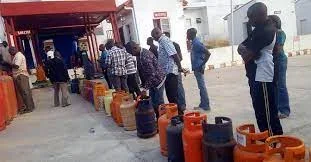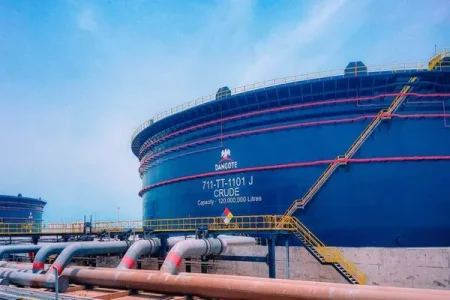
In a growing crisis, Nigeria is experiencing a dire scarcity of Liquefied Petroleum Gas (LPG), commonly known as cooking gas, with Lagos and several other states severely impacted. This predicament has left households and small businesses struggling to afford this essential energy source. The scarcity has also triggered skyrocketing prices, forcing consumers to dig deeper into their pockets.
According to our findings, the scarcity has not spared Katsina, Sokoto, Delta, Kaduna, and Kano, raising concerns about the root causes of this issue. The situation began to deteriorate late last month and has only worsened since. LPG terminal owners increased prices by a staggering 66% in October alone. A 20 metric-ton cylinder of cooking gas, which cost N10 million at the start of the month, soared to N16 million by month-end, despite Nigeria LNG (NLNG) supplying gas at N9 million.
Our weekend market survey found that a 12.5 kg cylinder of cooking gas is now being sold on the black market for a hefty price, ranging from N13,500 to N14,000. Gas plant owners claim they can no longer access sufficient quantities and have resorted to selling gas for prices between N1,100 and N1,200 per kg.
Households in Lagos and Katsina are feeling the pinch, with no official reasons given for the sudden scarcity. Sokoto residents are witnessing indiscriminate price increases, while Kaduna's citizens are left carrying their cylinders in search of gas. Kano is also experiencing a panic-buying situation, driving up prices at filling stations.
Though Abuja and Kwara have not reported scarcities, prices have risen in these regions, making cooking gas less affordable for consumers. While the exact causes of these gas woes remain uncertain, the Nigerian Liquefied Natural Gas Limited, which supplies 70% of the cooking gas consumed in the country, believes that prices may begin to stabilize soon due to government intervention.
The Federal Government has taken note of these escalating prices, summoning the Nigerian Midstream and Downstream Petroleum Regulatory Authority to address the situation. The government's swift action is essential to ensuring that cooking gas remains an accessible commodity for all Nigerians



![[FULL LIST] Tinubu Appoints IBB's Son, Others to Lead Key Agencies](/data/attachments/219/219051-c45e0723af5235b4e99b88eb1fa579fd.jpg?hash=su4VHIBpS9)
